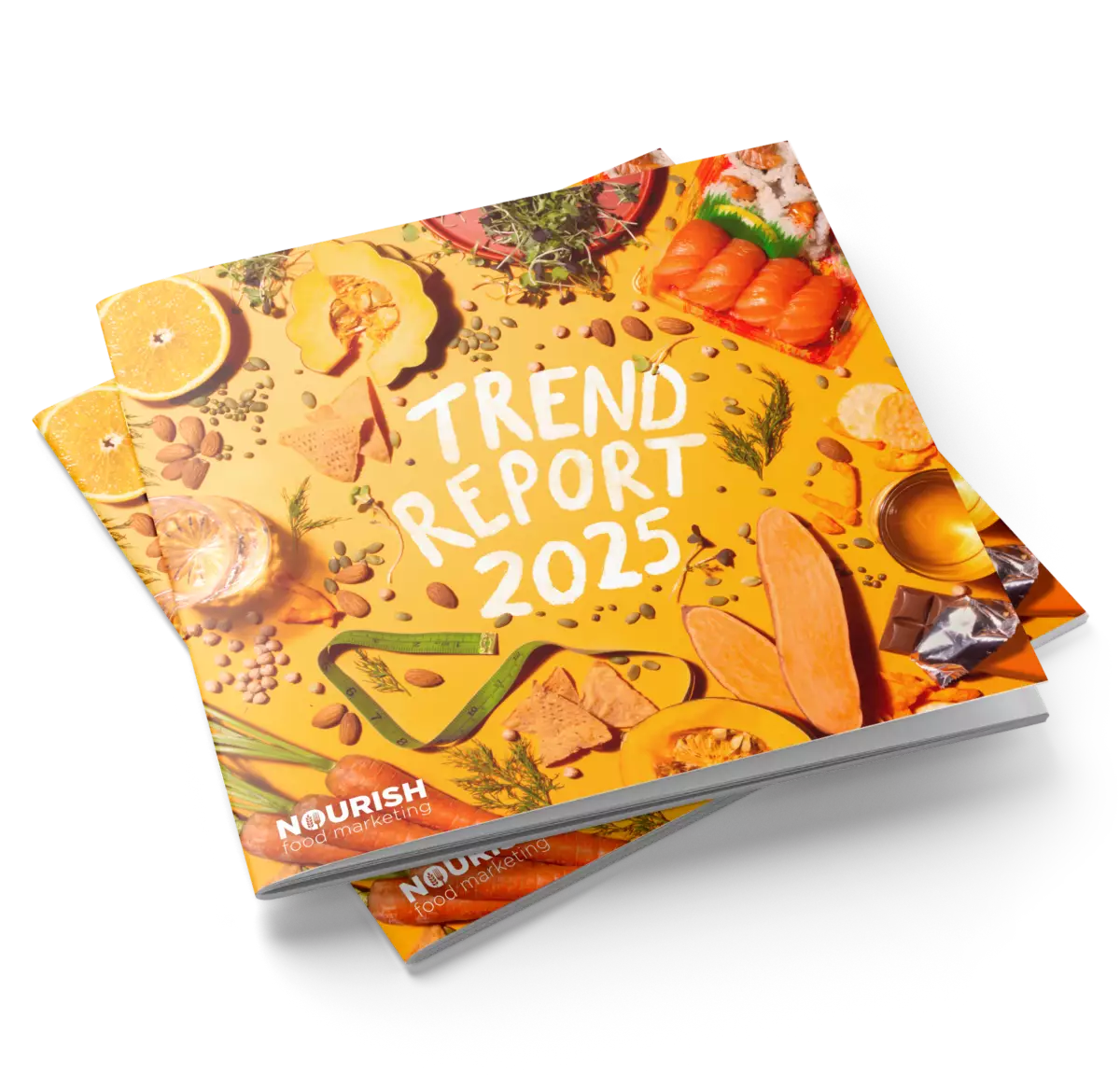Sustainability is a hot topic, especially in the food and beverage sector. We’ve seen it crop up repeatedly in our annual Nourish Trend Report, everywhere from eco-friendly farming to consumers trading down on the protein scale. But with all this talk, is the word “sustainable” losing meaning with consumers?
At the end of last month, Nestlé, the world’s largest food maker, announced it would no longer pursue carbon-neutral claims using carbon offsets. Instead, they plan to invest in cutting greenhouse emissions. JBS, the world’s largest meat processing company, was forced by a US advertising watchdog to cease using its aspirational net zero claims like “Global Commitment to Achieve Net-Zero Greenhouse Emissions by 2040.” And in October of 2022, a lawsuit was filed challenging the ‘carbon neutral’ claim made on bottles of Evian spring water, asserting that they are not carbon neutral based on “how a reasonable consumer would understand the term.”
The tide is turning on companies using carbon offsets, as regulators and consumers increasingly see this as a game of greenwashing. Can anything truly be carbon-neutral? And how does the average consumer make sense of those confusing carbon offsets? Indeed, about half of Canadians think “most environmental claims on food & drink packages are a scam.”
Source: Mintel November 2021
So what is reasonable and the best path forward, especially as the science behind reducing greenhouse emissions is a work in progress? As recycling has shown, it’s messy and confusing; consumers invested a lot of time into separating their garbage, only to find that it isn’t the answer, with most of it ending up in landfill. Can we expect consumers to understand sustainability claims, both real and aspirational? And if so many of them suspect they’re being duped, how best to build trust and cut through the clutter of claims?
Be clear, be truthful, and be a Sustainability leader for the public
Consumers don’t expect perfection, but they do expect transparency in sharing your roadmap to decrease emissions. Pulling back the curtain builds trust, especially when no standardized definitions or inputs exist. A great example of radical transparency — and owning it when they got it wrong — is Oatly. They created fckoatly.com, a cleverly assembled timeline of the internet hating on Oatly for a series of fumbles, some real, some imagined, and the brand’s responses. The simple truth is we are all figuring this out together, and there will be failures and missteps; it will not be a straight line always moving forward.
Providing consumers with an option to do better will influence their shopping decisions, with nearly three-quarters of consumers (72%) preferring to shop at food retailers with sustainable or ethical practices. Ninety-four percent of Canadians believe it’s a brand’s responsibility to create products that are not harmful to the planet. The good news? They’re putting their money where their mouths are; 40% of Canadians say they’ve purchased a product or service based on a company’s claims – when those claims are well-communicated.
Source: Deloitte Canada, The Future of Food: The Sustainability Conviction.
Speaking your customers’ language is vital to landing your message
But don’t forget that “sustainability” means different things to different consumers. Issues like packaging, sourcing, animal and worker welfare, water usage and food waste often mean more to consumers than a nebulous concept of “carbon.” Knowing it’s not a one-size-fits-all situation, ask yourself where your niche is as a company or brand and where you can make a difference to your consumer base and target audience. Where do your agricultural and ingredient partners fit in? You need to do the work to understand what is most important to your loyal customers and how best to frame and communicate it.
For those of you in foodservice, many studies show that more consumers will opt for lower-carbon meals when you have sustainability labelling on the menu. It’s further proof that you need to provide consumers with bite-sized, easy-to-understand options at the point of purchase and in day-to-day life in simple “this is better than this” terms. The KISS principle is critical for an area that’s anything but!
Remember, it’s a journey, and you need to take your consumer along with you. There will be bumps in the road. You must give signposts and updates along the way and be prepared for detours as conditions change! The important thing is to know your destination, keep moving, and communicate openly and honestly. And if you have questions about the communications aspect, talk to us about making your sustainability messaging meaningful, helpful, and impactful.
